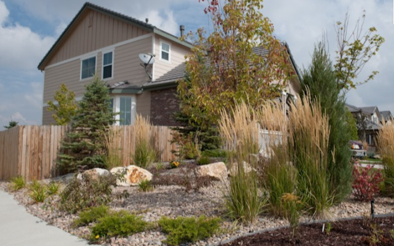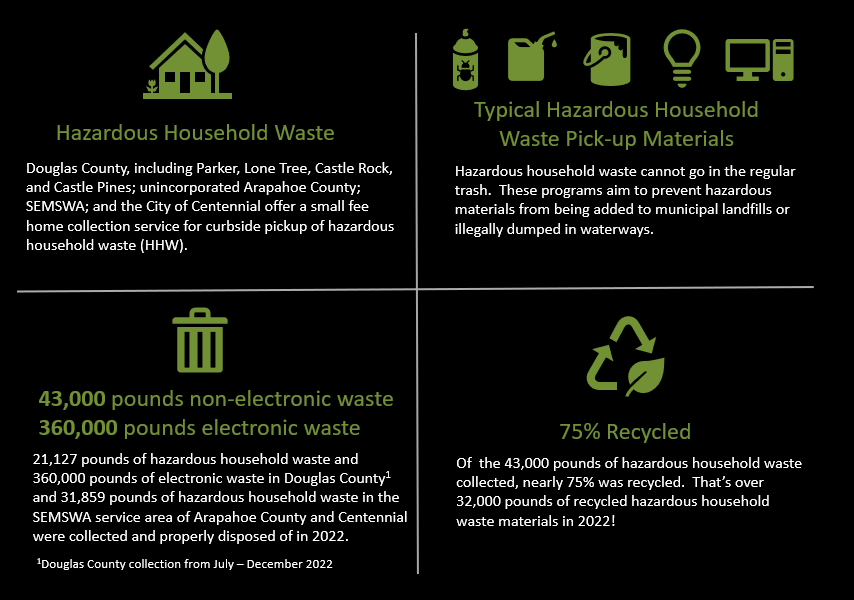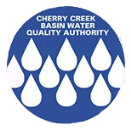Regulated Stormwater MS4 Permittees
All municipalities with Municipal Separate Storm Sewer Systems (MS4s) permits from the Colorado Department of Public Health and Environment (CDPHE) in the watershed have adopted stormwater programs consistent with Regulation 72 for construction projects within their jurisdictions. Regulation 72 requirements are more stringent than MS4 Permit requirements in Regulation 61 Colorado Discharge Permit System Regulations.
In 2022, the MS4 permittees conducted 14,880 inspections of over 3,095 construction sites. In addition, the MS4 permittees required that construction site owners/operators install 69 new permanent control measures that are designed to reduce or eliminate pollutants in stormwater before it enters Cherry Creek or its tributaries.
Further information on each MS4’s program can be found in their annual reports in the links below.
Find out more about MS4 Permittees' programs
- link Arapahoe County Environmental and Stormwater Management, Construction and Post-Construction
- link City of Aurora Environmental Resources
- link City of Castle Pines Stormwater
- link Town of Castle Rock Stormwater
- link Douglas County Stormwater Management
- link City of Greenwood Village Storm Water Quality
- link City of LoneTree Stormwater Management
- link SEMSWA (City of Centennial) Water Quality, Construction and Post-Construction
- link Town of Parker Stormwater
- link CDOT Water Quality
Public Education
In addition to regulating construction sites in the Cherry Creek Reservoir basin, MS4 permittees also have programs to educate the public, respond to and eliminate illicit discharges, and reduce or eliminate pollutants in stormwater from municipal operations. Examples of these efforts include:
- link One thing is Clear (Douglas County, Town of Castle Rock, Town of Parker, City of Lone Tree, Highlands Ranch Metro District, Castle Pines Metro District, Castle Pines North Metro District, Stonegate and Lincoln Park Metro Districts)
- link Arapahoe County Splash: Splash 2022 Summary (Arapahoe County, City of Cherry Hills Village, City of Centennial, Cherry Creek State Parks, City of Sheridan, Greenwood Village)
- link Town of Castle Rock Campaign Summary
- linkColorado Stormwater Council (CSC)

Above & Beyond
 photo credit: Town of Castle Rock
photo credit: Town of Castle Rock
Landscape Ordinance Limits Grass Lawns for New Residential and Commercial Properties in Castle Rock, Colorado
On October 18, 2022 Town Council approved an ordinance that prohibits grass lawns in front yards of new homes permitted for construction after Jan. 1. 2023 – instead requiring low-water ColoradoScapes. On average, 42% of residential water consumption in Castle Rock is used outdoors. With the high cost of infrastructure to keep up with outdoor watering demand, coupled with Colorado’s frequent droughts and changing weather patterns, the Town of Castle Rock is implementing an ordinance limiting high-water-use grass lawns. “Keeping up with demand during the summer requires a lot of infrastructure that we only use three or four months out of the year, and it’s very expensive to maintain and expensive for ratepayers,” said Castle Rock Water Director Mark Marlowe. “We’re always trying to reduce peak demands because of the stress on our infrastructure.” The backyards of new homes will be limited to no more than 500 square feet of irrigated grass lawn. The requirements do not apply to existing homes. The ordinance also adds requirements for new nonresidential landscapes. This includes eliminating non-functional grass lawns, or areas of grass turf where play or recreational activities cannot take place. The requirements apply to apartments, condominiums, townhomes, HOA common areas and commercial businesses permitted after Jan. 1, 2023. These changes are anticipated to reduce phosphorus in the watershed both with less water waste from irrigation and less application of fertilizers.

photo credit: Town of Aurora
Water Conservation Ordinance Passes Unanimously in Aurora, Colorado
An ordinance that went into effect on September 30, 2022 and was unanimously approved by the Aurora City Council allows cool weather turf for new development only in active or programmed recreation areas, such as sport fields and organized social/cultural gatherings. It prohibits turf in common areas, medians, curbside landscape (“tree lawns”), and in most residential front yards while restricting it in backyards to allow for 45% coverage or 500 sq. ft., whichever is smaller. The ordinance permits turf in the front yard in alley-loaded developments that do not include substantial backyards. It also creates a path for transition zones to allow developments with site plans that are currently approved to better blend in appearance with the new areas that will be covered by the ordinance. Finally, the ordinance prohibits the use of cool-weather turf for the development of new golf courses and it restricts ornamental water features, such as exterior decorative fountains, waterfalls, basins and ponds. Warm weather turfs that use less than 15 inches of supplemental irrigation, such as buffalo grass, are permitted. Mayor Coffman noted that continual drought in the arid west and the impacts of climate change weighed heavily in his decision to sponsor this ordinance. “Colorado is in a crisis,” he said. “We need to take action to ensure that Aurora can continue to grow responsibly.”
Household Hazardous Waste Recyling

